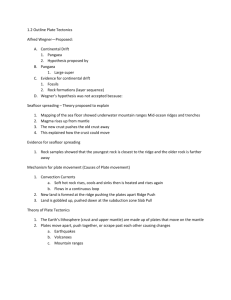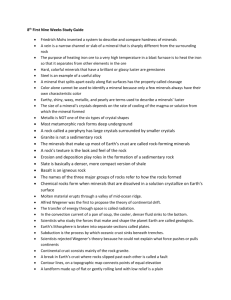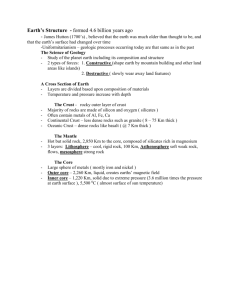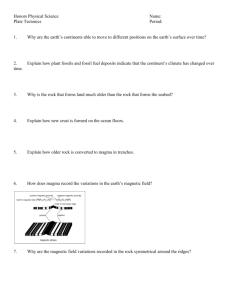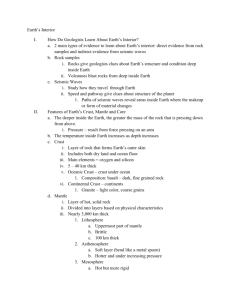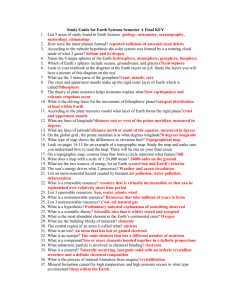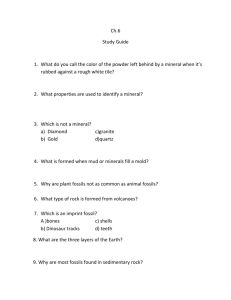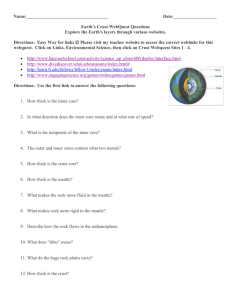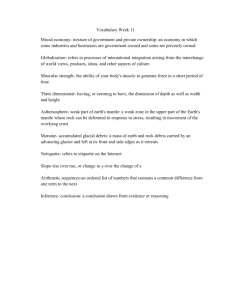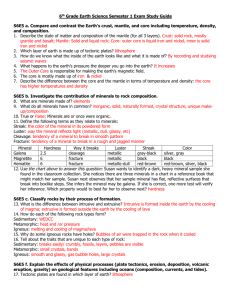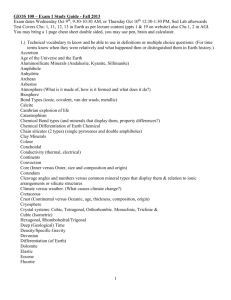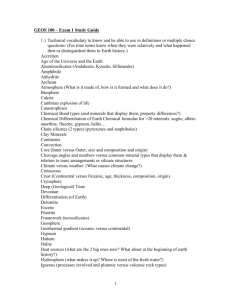Science Unit1 5th
advertisement
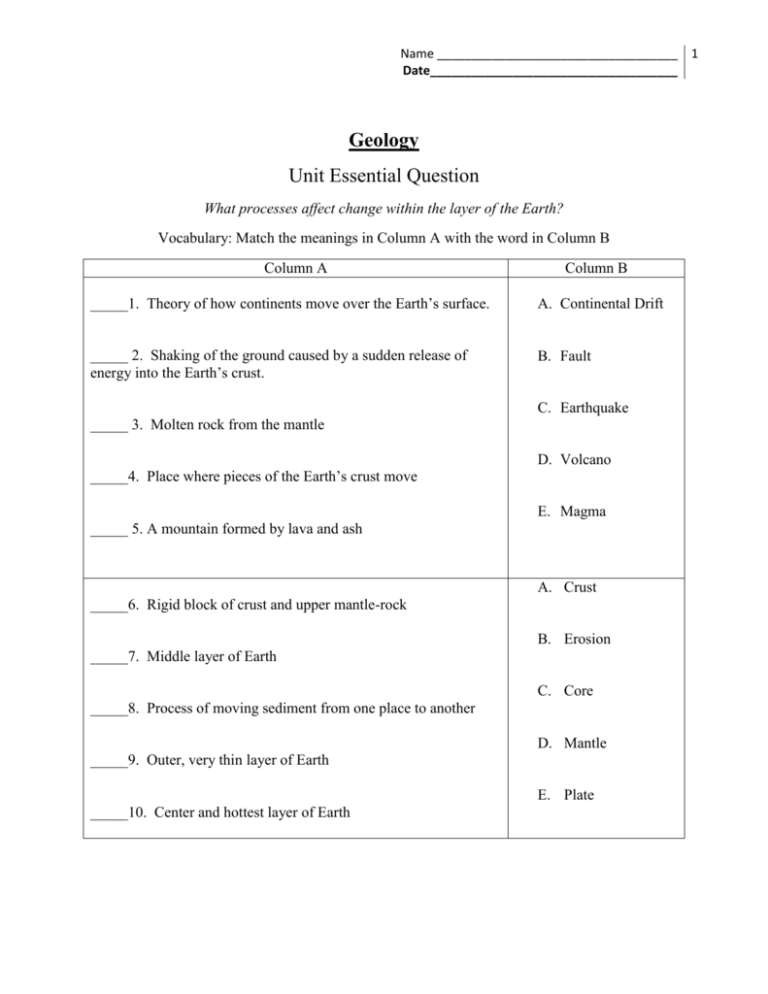
Name ___________________________________ 1 Date____________________________________ Geology Unit Essential Question What processes affect change within the layer of the Earth? Vocabulary: Match the meanings in Column A with the word in Column B Column A Column B _____1. Theory of how continents move over the Earth’s surface. A. Continental Drift _____ 2. Shaking of the ground caused by a sudden release of energy into the Earth’s crust. B. Fault C. Earthquake _____ 3. Molten rock from the mantle D. Volcano _____4. Place where pieces of the Earth’s crust move E. Magma _____ 5. A mountain formed by lava and ash A. Crust _____6. Rigid block of crust and upper mantle-rock B. Erosion _____7. Middle layer of Earth C. Core _____8. Process of moving sediment from one place to another D. Mantle _____9. Outer, very thin layer of Earth E. Plate _____10. Center and hottest layer of Earth Name ___________________________________ 2 Date____________________________________ Science Concepts and Understanding Directions: Write the letter of the best possible answer on the line provided. ______ 11. Breaking rock into silt and other tiny pieces is known as A. mass movement B. weathering C. deposition _____ 13. You find a rock with pieces of seashells in it. Which kind of rock is it? A. Volcanic B. Sedimentary C. Metamorphic _____ 15. When the plates in Earth’s crust grind past each other, the result is ________? A. Earthquakes B. Mudslides C. Volcanoes _____12. What is needed to change a sedimentary rock into a metamorphic rock? A. erosion B. heat and pressure C. melting _____14. Which of the following best describes a mineral? A. A compound made from living matter B. A solid material arranged in a repeating pattern C. Hot, soft rock from the Earth’s mantle _____16. Which would most likely cause many of the highest mountains to form? A. The sudden release of energy as plates scrape past each other B. Magma bubbling up between plates that are pulling apart C. Two continental plates colliding. Name ___________________________________ 3 Date____________________________________ Use the word bank to complete the sentences Mineral hardness rock luster Rock cycle streak 17. A mineral’s ______________________________ describes how its surface looks when light reflects from it. 18. When you rub a mineral against a white tile, its _________________________ is the color of the powder left behind. 19. A mineral’s ________________________________ is its ability to resist being scratched. 20. _________________ is a natural solid that has its particles arranged in a crystal pattern. 21. The ______________________________ is the pattern of slow changes in rocks from one kind to another. 22. Material made up of one or more minerals’ is called ______________________________. Science Reading and Thinking Skills: Concepts and Understanding For questions 23-25 use the following chart. Choose the best answer 1 Talc 2 Gypsum 3 Calcite MOH’S HARDNESS SCALE 1 is the softest, 10 is the hardest. 4 5 6 7 Fluorite Apatite Orthoclase Quartz _______ 23. Which of the following minerals is the hardest? A. Gypsum B. Talc C. Topaz _________24. Which of the following minerals is the softest? A. Fluorite B. Talc C. Diamond ______ 25. Which of the following minerals can scratch corundum? A. Diamond B. Apatite 8 Topaz 9 10 Corundum Diamond Name ___________________________________ 4 Date____________________________________ Geology: Application Answer the following questions. Explain your answer using complete sentences. 26. Which would be a better model of the Earth’s layers? A. An orange B. A peach Explain the choice you made: _____________________________________________________________________________________ _____________________________________________________________________________________ _____________________________________________________________________________________ _____________________________________________________________________________________ 27. Label the four layer of the Earth:
